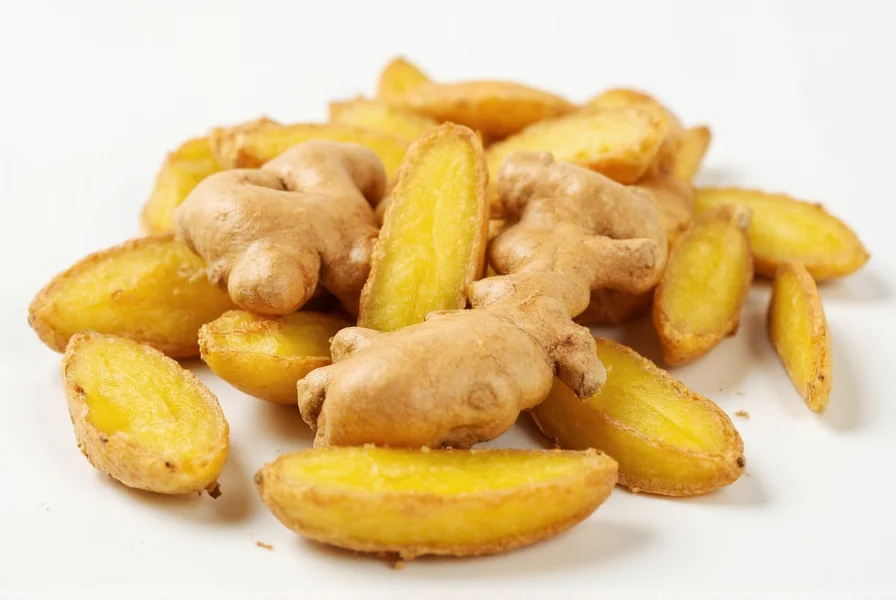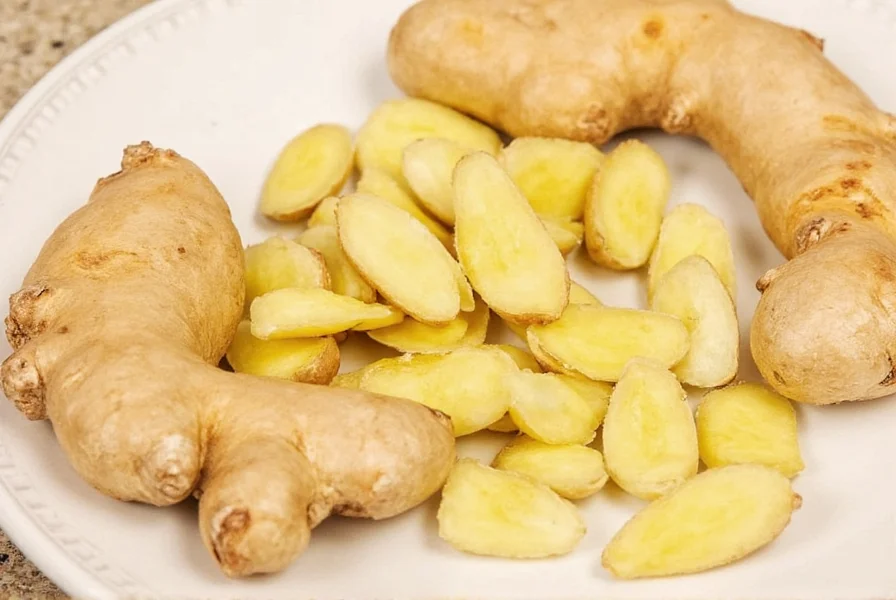Research shows ginger for heartburn has mixed effects: it may help some people by reducing inflammation and improving digestion, but can worsen symptoms for others due to its spicy nature. Scientific evidence suggests ginger works best for occasional heartburn when used in moderate amounts as tea or supplements, but those with chronic GERD should consult a doctor before use.
Heartburn affects millions worldwide, prompting many to seek natural remedies like ginger. This ancient root has been used for centuries in traditional medicine for digestive issues, but its relationship with heartburn is more complex than often portrayed. Understanding when and how ginger might help requires examining both scientific evidence and individual physiology.
The Science Behind Heartburn
Heartburn occurs when stomach acid flows back into the esophagus, causing that familiar burning sensation. This condition, technically called acid reflux, happens when the lower esophageal sphincter (LES) doesn't close properly. While occasional heartburn is common, frequent episodes may indicate gastroesophageal reflux disease (GERD), which requires medical attention.
Ginger's Bioactive Properties
Ginger contains potent compounds like gingerols and shogaols that give it anti-inflammatory and antioxidant properties. These compounds may help relax the gastrointestinal tract and speed up gastric emptying, potentially reducing the time stomach contents remain in contact with the esophagus. However, ginger's spicy nature can also stimulate acid production in some individuals, creating a paradoxical effect.
| Ginger Form | Recommended Amount | Best Timing | Potential Benefits |
|---|---|---|---|
| Fresh ginger tea | 1-2 grams grated root | 30 minutes before meals | May prevent reflux episodes |
| Capsule supplement | 500-1000 mg | With meals | Controlled release of active compounds |
| Candied ginger | 1-2 pieces | After meals | Milder effect on digestion |
What Research Says About Ginger for Heartburn Relief
A 2020 review published in the Journal of Gastroenterology and Hepatology analyzed multiple studies on ginger and digestive health. Researchers found that ginger significantly accelerated gastric emptying in 68% of participants, which could reduce heartburn risk. However, the same review noted that 22% of participants experienced worsened symptoms, particularly those with pre-existing GERD.
Another clinical trial compared ginger to conventional antacids and found comparable short-term relief for mild heartburn, but less effectiveness for severe cases. The study concluded that ginger works best as a preventive measure rather than a treatment for active heartburn episodes.

How Ginger Might Help or Harm Heartburn
Ginger's dual nature explains why it helps some people but worsens symptoms for others:
- Helpful mechanisms: Reduces inflammation in the digestive tract, relaxes intestinal muscles, accelerates gastric emptying
- Potentially harmful effects: May increase stomach acid production, irritates sensitive esophageal tissue in some individuals
People with occasional heartburn after large meals often report the most benefit from ginger, while those with chronic GERD or esophagitis may experience symptom exacerbation.
Practical Guidelines for Using Ginger
For those wanting to try ginger for heartburn relief, these evidence-based recommendations can maximize benefits while minimizing risks:
- Start with small amounts (1/4 teaspoon of grated ginger or 250mg supplement)
- Consume ginger 30 minutes before meals rather than during or after
- Choose gentler forms like tea or supplements over raw ginger
- Monitor symptoms for 2 weeks to assess effectiveness
- Discontinue use if symptoms worsen after 3-4 doses
Remember that ginger's effects vary significantly between individuals. What works for one person might not work for another, making personal experimentation under careful observation essential.
When Ginger Isn't Appropriate for Heartburn
Certain situations warrant avoiding ginger for heartburn relief:
- During active severe heartburn episodes
- When taking blood thinners (ginger has anticoagulant properties)
- Before surgery (typically stop 2 weeks prior)
- With certain diabetes medications (may enhance effects)
- During pregnancy beyond the first trimester without medical approval
People with chronic heartburn symptoms occurring twice weekly should consult a healthcare provider before relying on ginger or other home remedies, as persistent symptoms may indicate GERD requiring medical treatment.

Comparing Ginger to Other Natural Heartburn Remedies
While ginger shows promise for some, it's not the only natural option. Understanding how it compares to alternatives helps make informed decisions:
- Chamomile: Better for immediate soothing but less effective for prevention
- Aloe vera: More effective for esophageal healing but slower acting
- Slippery elm: Creates protective coating but lacks ginger's digestive benefits
- Baking soda: Provides instant relief but high sodium content limits regular use
Many people find combining ginger with other remedies works best—such as ginger tea followed by a small amount of aloe vera juice. However, always introduce one remedy at a time to properly assess its effects.
When to Seek Medical Advice
Natural remedies like ginger shouldn't replace professional medical care when needed. Consult a healthcare provider if you experience:
- Heartburn more than twice weekly
- Difficulty swallowing
- Unintended weight loss
- Nighttime symptoms disrupting sleep
- Symptoms persisting after 2 weeks of consistent ginger use
Chronic heartburn can lead to serious complications like esophagitis or Barrett's esophagus, making proper diagnosis and treatment essential.
Conclusion: Ginger's Role in Heartburn Management
Ginger for heartburn relief presents a nuanced picture. Scientific evidence supports its potential benefits for occasional heartburn through improved digestion and reduced inflammation, but its spicy nature means it might worsen symptoms for some individuals. The key lies in understanding your personal response, using appropriate forms and dosages, and recognizing when professional medical care is necessary. As with any natural remedy, patience and careful observation yield the best results when incorporating ginger into your heartburn management strategy.











 浙公网安备
33010002000092号
浙公网安备
33010002000092号 浙B2-20120091-4
浙B2-20120091-4